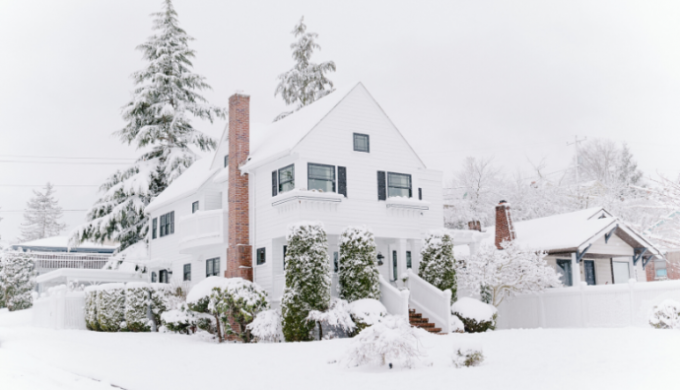Buying a house is as difficult as finding a perfect soulmate for you. Sometimes you don’t have the capital to purchase your dream home and then there are times when you have the capital, but you cannot find a perfect house that fits your needs.
If you are about to enter the market as an investor in the real estate sector you need to know a few things before jumping in. From a new home to move to a house placed on the market for rental income, each intent requires previous knowledge.
Excluding finances, business, passion, and needs, there is one more factor that is ignored by most of the people buying houses. It is “time.”
Time plays a very important role when purchasing a house. Not all times throughout the year offer equal opportunity in the housing market. Keep reading to learn more.
The best month to buy a house

According to research from real estate experts, fall is the best season to buy a house. Other research includes the end of summer as well.
Usually, the market is crowded with buyers in early summer and spring so you’ll find yourself struggling to compete.
Meanwhile, sellers and investors may sell at lower prices at the start of fall because they know the season of fall has least sales. They often don’t have time to wait, either. They’re in a hurry to sell.
Some sellers may be looking to move their families elsewhere while others may actually be investors intent on getting out of the market promptly. In either scenario, buyers hold the leverage
There’s another very important thing to consider regarding timing your house purchase: school. Families usually try to plan purchasing a home and relocating to coincide with a new school year.
If you don’t have children yet (or are willing to move them in the middle of a school year), you can take advantage of this. In Canada, school runs from late summer to late spring, which gives you lots of room.
Best days of the month to buy a home
Market researchers identified the best day of the month to purchase a home as being December 26 (the day after Christmas). Monday and Friday are the best days of the week to save two to three per cent on the rate of the house.
Risks of buying a home in winter

Let’s assume that you have bought a house in the fall and now a time comes to move into your new home. Believe me or not, the day you will move will remain an everlasting experience in your memory.
Moving in winter comes with a few risks which may seem small but in reality can lead to serious problems. It’s better to take action before any problem occurs.
Want to know what are those problems that come while moving in winters?
Here’s a list of small but realistic problems mentioned by Paradise Developments.
- Does your new house have all the accessories, utensils of the kitchen?
- Are stoves, ovens and other electrical appliances working properly and connected?
- Are there extra towels, blankets or not?
- Is the weather on moving day prohibitive?
- Is everything placed properly in the truck?
On the final day of moving, prepare/order your food and keep some utensils open for use because it takes time to set up the whole kitchen. Also keep some extra towels, clothes and blankets, not to mix with other stuff because cold winds will not spare you in any emergency.
Are all your utilities set up at your new home? Is your furnace on? Is the space heater ready to assist with the moving process? These are all questions you should be asking yourself if you’re planning on moving during the winter. Make sure to give appliances like your furnace enough time to settle, particularly if nobody has been living in your new home for a while.
The worst time or best time?

Price is undoubtedly a major factor when figuring out the right time to buy a home.
In warmer states and countries, seasons won’t play a big role in the price because sellers are not worried about any change in the weather that is going to decrease their sales.
This is certainly not the case in Canada, which experiences four relatively extreme seasons.
You have to be very smart throughout the home-buying process. Consider not just the time of year or day of the week you’re buying but also whether the home is actually worth the asking price.
The point is there are a lot of things other than time to look for and as a buyer, you should consider all the merits and demerits of that house. Because not every cheap thing is worth buying.
Frequently asked questions
Do house prices go down in winter?

House prices go down in winter but so does the quantity of homes available for purchase. So while you may be able to find great deals around, you may have trouble finding a house that ticks off every item on your checklist.
Is it harder to sell a house in the winter?
Sellers definitely have a harder time finding buyers in winter. This is why prices dip so low! There are several reasons for this. For one, it’s hard to showcase your home’s appearance during the winter months when everything is gray and dreary. This certainly has an effect (even if just subconscious) on prospective buyers.
Additionally, many people are on vacation or working around bank holidays to obtain mortgage loan approval. Only a handful of very motivated buyers will still be in the market.
How long do most houses stay on the market?

Many parts of North America are experiencing rapid population growth and interest from foregin property investors. As a result, houses typically stay on the market for just 25 days. By shopping during the slow months, you can likely find stragglers that didn’t sell as quickly. Just make sure you understand why they haven’t sold quickly; make sure it’s not an issue that will cause problems for you down the road.









